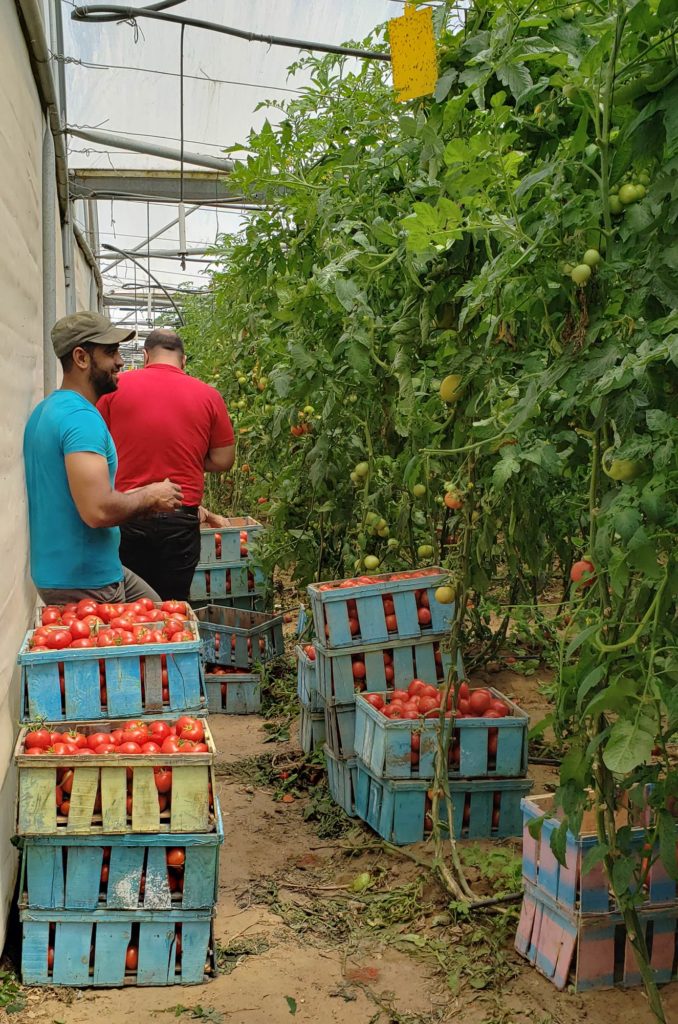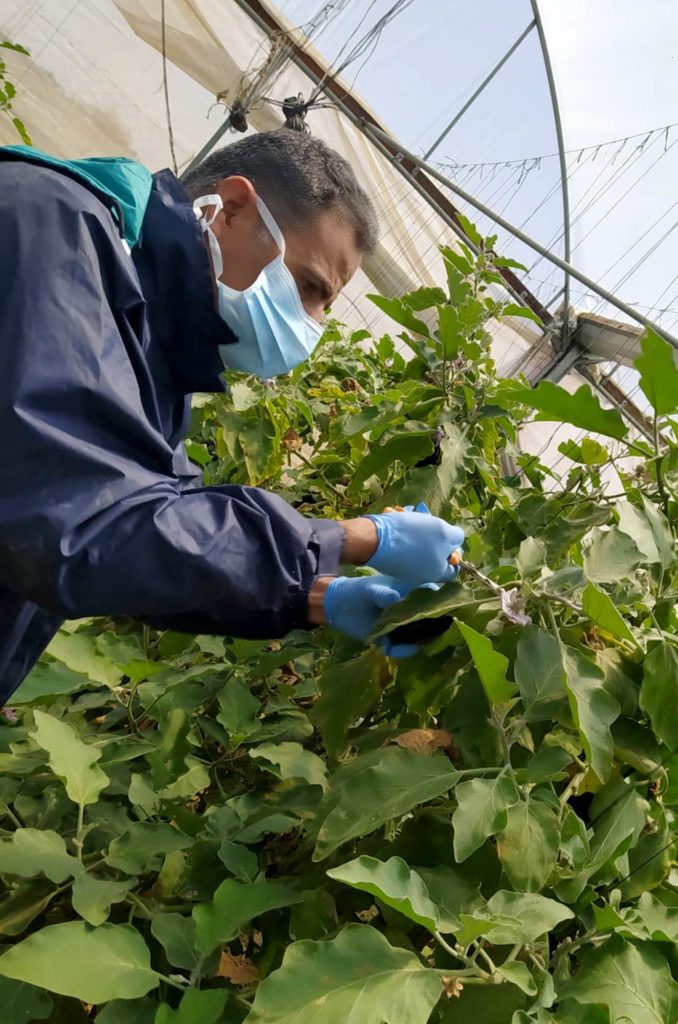AGRICULTURE
Greenhouse Repairs Save Crops After a Storm Batters Gaza
May, 2020
“Farming is a commitment to the land.” — Mohamed
Mohamed woke up energetic and positive. Today, it’s time to harvest the fresh tomatoes that he planted a few months ago.
Mohamed lives in Khan Younis, in the south of Gaza, with his wife and two daughters. His older daughter has cerebral palsy. They all live in a one-room house with a plastic roof.
He began farming at the age of 14, and he’s been at it for 20 years now.


“For farmers, land isn’t only a place to live,” Mohamed says. “It’s an inheritance — a connection to past generations. Farming is a commitment to the land.


“It’s so relaxing to spend a day growing vegetables. Living with green spaces around us is priceless.”
In mid-March, Palestine was hit hard by a forceful storm that tore the covers off of greenhouses across Gaza. The damage threatened to destroy many crops. This would have meant local farmers losing their income during the height of the agricultural season.




“It’s hard to imagine what might have happened if I had lost my crops. It would have left me with a lot of financial burdens.”
Like many farmers in Gaza, his dreams rest on the crops he grows in his greenhouse. The economic situation for local farmers in Gaza is extremely challenging — a day-to-day struggle to earn enough to provide for their families.
Very soon after the storm hit, Anera did a damage assessment and worked fast to repair the protective coverings on the greenhouses so farmers could keep growing their crops.


“Anera saved my crops,” Mohamed says. “Now my tomatoes are flourishing.”
Osama is another farmer with an Anera-built greenhouse. He lives in Khan Younis with his eight children and his disabled mother.


“We live in a marginalized area. The day the sheets of my greenhouse were blown off, his heart flew off too. It was very thoughtful of Anera to fix my greenhouse.”
“I would have lost my eggplants, the source of my entire income,” he says. He says he generally reaps half a ton [500 kilos] of eggplants every harvest, which he can sell for about $170 [600 shekels]. He spends some of what he earns on water for irrigation and fertilizers and uses the rest for his household expenses.


“When I am in my greenhouse, all of my thoughts are absorbed in weeding and trimming. Life in nature is great,” Osama says. “It keeps me focused on the moment,”


Purchasing Fresh Produce for Ramadan Food Parcels
In order to maximize the impact of our interventions, Anera is including fresh produce purchased from rehabilitated greenhouses in our Ramadan food parcel distributions. This year we are providing food packages and produce parcels to 3,000 families of five or more who live marginalized areas, have no source of income, are women-headed, and who have a member with a disability. These families can now look forward to sharing a meal together for the entire month of Ramadan, without worrying about how they will get to the store or pay for their groceries.
Thanks to generous funding from an anonymous donor, Anera helped restore 43 family greenhouses with a total area of 1.75 acres, in addition to 9 acres of greenhouses belonging to 50 farming households.


